Why Iran Remains Skeptical of a US-Led Nuclear Consortium
Why Iran Remains Skeptical of a US-Led Nuclear Consortium
As expected, with the Iran–U.S. nuclear negotiations entering technical issues and practical details, the process has entered a difficult phase, and the initial momentum and constructive atmosphere seen in the early rounds of talks are no longer present.
In fact, during the first three rounds of negotiations, both Iran and the United States aimed to gauge each other’s seriousness in pursuing negotiations and moving toward a win-win cooperation. It seems that both sides succeeded in gaining each other’s attention and building initial trust. The constructive nature of the initial phase can be attributed to the simple formula agreed upon by both parties: Tehran sought the dismantling of the sanctions regime imposed against it, while Washington wanted a strict control system to prevent Iran’s nuclear program from being diverted toward developing nuclear weapons.
Given that, at this historical turning point, Iran is seeking to end its tense regional status and create an environment conducive to attracting foreign investment, and the United States is looking to distance itself somewhat from the endless Middle Eastern conflicts, reaching a defined, concrete, and limited solution was and still is not improbable.
However, the negotiations have become increasingly difficult. On one hand, pressure from the Zionist lobby on the U.S. government has intensified, with Netanyahu attempting to use every available tool to disrupt Trump’s plan for negotiations with Iran. On the other hand, the talks have entered a technical and non-political stage, where there is no room for rhetoric and both parties must take concrete steps in reality and action.
New U.S. Message; A New Chapter in Negotiations
While some Western media outlets and journalists are speaking of an imminent agreement between Iran and the United States under terms such as the “Muscat Agreement,” recent days have seen a shift in the rhetoric of officials on both sides. No agreement has yet been reached on core issues such as uranium enrichment and sanctions, and the fundamental differences remain unresolved.
It is important to note that in the five rounds of negotiations held so far, only during the fifth round were technical and detailed discussions exchanged in textual form. In the first to fourth rounds, not only did the Americans refrain from presenting any text, but they also failed to respond to the proposal submitted by Iran during the third round. Two days ago, while the exact date of the sixth round of negotiations has yet to be announced, the United States sent a message to Iran. Judging by Iran’s reaction, the language, and elements of this message appear to contradict the overall tone of the negotiations.
Media Spin and Threat Manufacturing
From the Iranian perspective, although the United States and Israel may have differences in their approach to Iran, Washington is effectively using Israel as a pressure tool. The U.S. is attempting to leverage the upcoming activation of the snap back mechanism, along with threats of Israeli attacks on Iran’s nuclear, military, and commercial infrastructure, to pressure Tehran. However, statements from both the Iranian Foreign Minister and the Supreme Leader suggest that Iran has no intention of retreating from its fundamental positions and basic rights. Iran’s firm stance reflects a refusal to be intimidated by the threatening rhetoric of the opposing side.
The New U.S. Proposal: Continuation or Collapse of Talks
The latest U.S. proposal—delivered through the mediation of the Omani Foreign Minister ahead of the sixth round of talks—includes new elements. Iran’s response to this proposal could determine whether the negotiations continue or collapse. Notably, this message coincided with the release of a politically charged report by the IAEA, a timing that appears deliberate.
Based on available information, Washington ultimately seeks the dismantling of Iran’s nuclear infrastructure and the definition of a transitional period during which Tehran would be permitted limited enrichment. After this transitional period, Iran’s nuclear fuel needs must either be met through imports or through a joint enrichment consortium involving Arab countries, under strict U.S. supervision, and outside of Iranian territory—possibly on the three disputed islands under American oversight.
The content of this letter and the attached proposals suggest that the likelihood of a nuclear deal has significantly diminished. Contrary to Trump’s claims, it is no longer credible to speak of an imminent agreement. It is highly unlikely that the issue of enrichment can be resolved through a consortium initiative—especially when the American red line is that no level of enrichment should take place on Iranian soil.
The shift in the U.S. position—from preventing nuclear weaponization to banning any form of uranium enrichment—indicates that Washington is increasingly aligning its stance with Israeli demands and escalating its pressure on Tehran.
In response to this posture, remarks made by Ayatollah Khamenei, the Supreme Leader of the Islamic Republic, on the anniversary of Ayatollah Khomeini’s death in Tehran, can be seen as part of Iran’s reply to the latest U.S. message. In his speech, he clearly reiterated Iran’s opposition to a “zero enrichment” policy and asserted that the ability to enrich uranium at any level is among the fundamental rights of the Iranian nation.
Given these circumstances, it must be said that if Trump refuses to back down from his red line of “zero enrichment in Iran,” what once seemed like his easiest foreign policy case may turn into a major political challenge.
Why Should Iran Trust the Consortium Proposal?
In recent days, Iran’s analytical and expert circles have been intensely focused on the consortium issue. Based on initial information, it appears that the United States has proposed forming a consortium involving Iran, Saudi Arabia, and the United Arab Emirates. The most critical question is whether this consortium would operate within Iranian territory or on foreign soil. Iran regards the cessation of enrichment activities on its own territory as contrary to its national interests. This is rooted in the belief that the past two decades have shown Western parties are not committed to fulfilling Iran’s nuclear fuel needs when required and have consistently used Iran’s need for higher enrichment levels in the pharmaceutical and medical industries as a means of political pressure.
Moreover, there is no real level of political or security trust between Iran and the UAE or Saudi Arabia that would justify long-term and constructive nuclear cooperation. The idea that Iran would expose a significant portion of its sensitive nuclear information to these two countries appears highly unlikely.
Ideas like a consortium can only be beneficial if they do not compromise Iran’s national sovereignty. Additionally, Tehran must have sufficient time to select appropriate partners and engage in meaningful negotiations—something that would require months. A consortium that is imposed on Iran, with imposed partners and under imposed conditions formed in a short time frame, is not something Iran is likely to accept.
Despite all this, the Islamic Republic of Iran has not officially rejected the proposal of establishing a regional consortium. In fact, it has implicitly welcomed such an idea. Majid Takht-Ravanchi, Political Deputy of Iran’s Ministry of Foreign Affairs, stated in an interview with reporters: “If the process moves forward and this proposal is seriously raised, we may consider it and express our views.”
It should be recalled that not only has Iran expressed openness to this proposal in the current context, but over the past two decades, it has repeatedly placed this idea on the negotiating table as a means to alleviate Western concerns regarding its enrichment program. One of the earliest references to the creation of a nuclear fuel enrichment consortium on Iranian soil dates back to 2006. Ali Larijani, then Secretary of the Supreme National Security Council and Iran’s chief nuclear negotiator, stated in an interview with the French magazine Le Point in April 2006: “It is conceivable that an international company be established to carry out enrichment activities in a designated part of Iran’s territory allocated to that company.”
However, the major obstacle remains Iran’s lack of trust in Saudi Arabia and the UAE. Perhaps the involvement of countries like Russia and Turkey could help break this deadlock, since the core issue in any consortium arrangement is mutual trust.
Another significant problem is the lack of discussion around a mechanism for lifting sanctions. The United States has provided no guarantees regarding the irreversible removal of sanctions and has offered no clear roadmap for sanctions relief or economic benefits for Iran. In reality, the U.S. appears to be pursuing a pressure-based diplomacy aimed at denying Iran even minimal economic gains while demanding maximum concessions in return. This dynamic has led to Tehran’s resistance and has reduced optimism about the future of the negotiations.







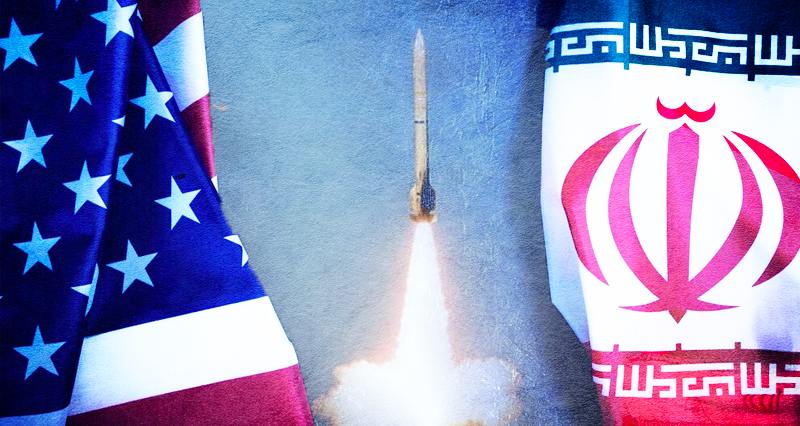

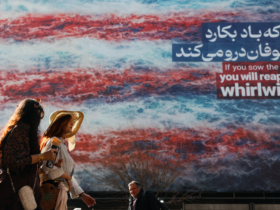
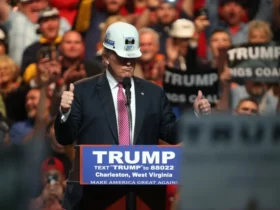
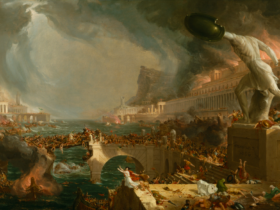
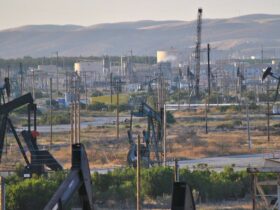
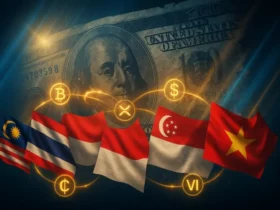
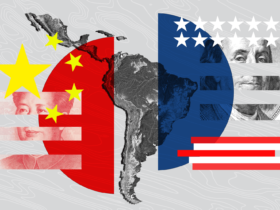


Leave a Reply